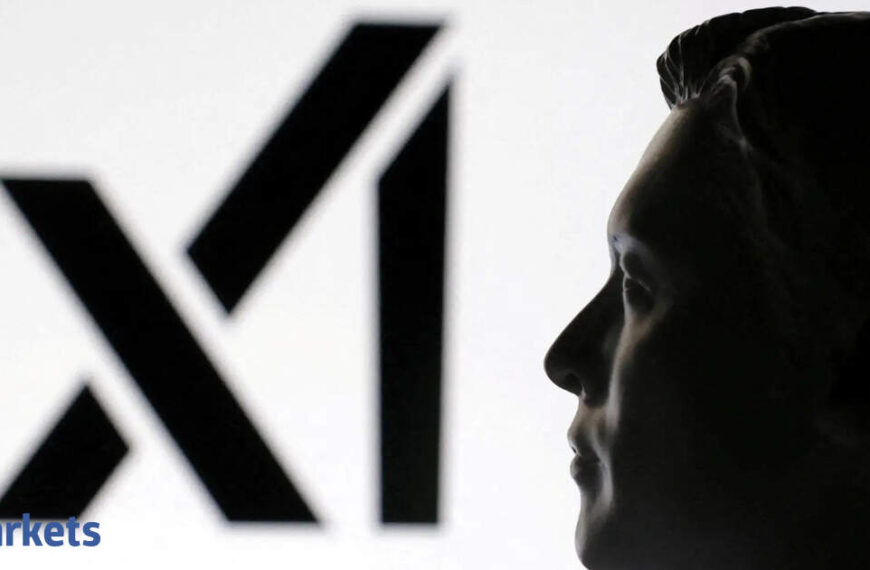The BSE Sensex shed 82.79 points, or 0.1%, to close at 81,361.87, while the NSE Nifty declined 18.8 points, or 0.08%, to settle at 24,793.25.
The market capitalization of all listed companies on the BSE shrank by Rs 4.64 lakh crore to Rs 442.55 lakh crore.
Sector Watch
On the 30-share Sensex pack, Adani Ports, Bajaj Finance, Tech Mahindra, IndusInd Bank, Nestle India, and Tata Steel led the laggards, shedding between 1% and 2.5%.
The Nifty Financial Services index slipped 0.4%, dragged down by modest losses in heavyweights ICICI Bank and Axis Bank, which fell 0.2% and 0.4%, respectively.
IT stocks, which derive a large share of their revenue from the U.S., dropped 0.9%. HCL Tech, Tech Mahindra, Coforge, Oracle Financial Services, and Infosys declined between 0.5% and 3.4%.In contrast, the Nifty Auto index bucked the trend to end 0.5% higher, supported by gains in Mahindra & Mahindra after it secured antitrust clearance for its proposed acquisition of SML Isuzu.Broader markets underperformed, with the Nifty Smallcap 100 and Nifty Midcap 100 indices falling 2% and 1.6%, respectively.
Expert Views
The Indian equity index experienced rangebound movement with a negative bias as cautious sentiment spread across the globe, driven by concerns over potential U.S. involvement in the Middle East conflict, said Vinod Nair, Head of Research, Geojit Investments, adding that investor mood was further affected by the Fed’s decision to keep interest rates unchanged while signalling persistent inflation and slower economic growth, which weighed on software export stocks.
“Broader market performance lagged the benchmark index, influenced by selling in mid-caps & small-caps, while better stability was noticed in large-cap growth stocks, keeping a close watch on crude oil prices and global developments,” said Nair.
The Nifty witnessed a lackluster expiry on the NSE, as the index remained within a narrow range throughout the session, indicating indecisiveness ahead of any directional move, said Rupak De, Senior Technical Analyst at LKP Securities, adding that “on the hourly chart, the index continues to trade below the 200-DMA, reflecting weak market sentiment.”
“On the daily chart, it has slipped below the 21-EMA, further reinforcing the bearish outlook. This negative sentiment is likely to persist as long as the index remains below 24,850. On the downside, support is seen at 24,550,” said De.
Global Markets
World equities fell on Thursday as investors fled riskier assets in favour of safe havens amid fears of U.S. involvement in the escalating Israel-Iran conflict.
On the seventh day of hostilities sparked by Israeli airstrikes on Iranian military and nuclear-linked targets, Tehran’s state media reported that its foreign minister was set to meet European counterparts in Geneva. Meanwhile, Israel reportedly struck Iran’s Arak heavy water reactor in its latest move against the country’s nuclear program. The intensifying conflict has rattled global markets.
In the Asian markets, Japan’s Nikkei 225 lost 1%, the Hang Seng dropped 2% amid tech-led selling, and the Shanghai Composite slipped 0.8%.
European markets mirrored the slide. France’s CAC 40 dropped 0.8%, Germany’s DAX fell 0.9%, and the UK’s FTSE 100 declined 0.5%. U.S. stock futures also pointed to a weak open, with the S&P 500 and Dow Jones Industrial Average contracts both down 0.4%.
The U.S. Federal Reserve held interest rates steady on Wednesday but maintained its forecast for two rate cuts this year. Policymakers flagged concerns over inflation risks, partly linked to higher import tariffs under President Donald Trump, and projected slower growth and a slight rise in unemployment.
The Bank of England was also expected to keep rates unchanged at 4.25% at its meeting Thursday, following two cuts earlier this year.
Crude prices have surged 11% over the past week, as the threat of supply disruptions from the Middle East continues to fuel market anxiety.



















